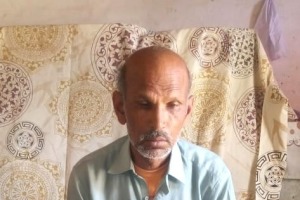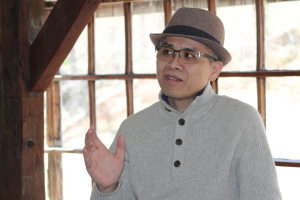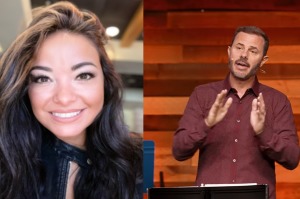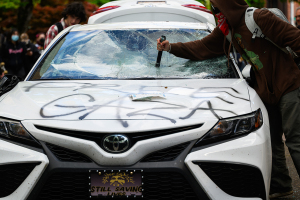Painkillers, Heroin Epidemic: Coming to Your Neighborhood?
The Centers for Disease Control recently issued a sobering, and at times, frightening report about the rise of heroin use in the United States.
For most people, heroin is something foreign, something that impacts "other people" in those neighborhoods, so the suffering and tragedy caused by the drug is someone else's problem.

They couldn't be more wrong. The epidemic of heroin use is everyone's problem, and by "everyone" I also mean Christians.
According to the CDC, heroin use in the United States increased by more than 60 percent between 2004 and 2013. That's bad enough, but if you look at the numbers more closely, they get even scarier.
Heroin use doubled among women; rose 114 percent among whites; and rose 109 percent among people between the ages of 18 and 25. And during the same period, the rate of deaths by overdose nearly quadrupled.
Almost as striking as the numbers is the geography of the heroin scourge. As Sam Quiñones documents in his devastating new book, "Dreamland," the areas hardest hit by the heroin epidemic aren't places like New York or L. A., but places like Charlotte, Nashville, and especially West Virginia and Ohio.
As Quiñones tells readers, the rise in heroin use was made possible by the widespread abuse of synthetic opiates, most famously Oxycontin and Vicodin. This abuse, in turn, was facilitated by two bad ideas.
The first was that these drugs were, somehow, not addictive. This required, as one doctor told Quiñones, throwing out "ten thousand years of reality" about the addictive nature of opiates.
People were willing to ignore reality because, in the 1980s and 1990s, living pain-free literally came to be seen as a kind of human right: in fact the World Health Organization claims "freedom from pain as a universal human right."
And no country took this "right" more to heart than the United States. With only 5 percent of the world's population, we consume 80 percent of the world's synthetic opiates.
These bad ideas, coupled with the over prescribing of these pills produced hundreds of thousands of opiate addicts. Eventually, when governments cracked down and made the pills harder to obtain, addicts turned to the cheap and more potent heroin imported from Mexico.
The result was the epidemic of heroin overdoses the CDC reported on.
The extent of the epidemic isn't the only surprising aspect of this story. Another surprise is the kind of people being caught up in the epidemic. Heroin use has spread from inner cities and unemployed factory workers in the "Rust Belt" to kids and the suburbs.
And that brings me back to Christians. Quiñones begins the story of the epidemic by telling the story of a Christian family in Columbus, Ohio. Both of their sons went to a Christian high school. While one graduated from a Christian college and went on to grad school at Yale, the younger son became addicted to synthetic opiates and eventually died from a heroin overdose.
Just as sad is the story of the Russian Pentecostal immigrants in Portland, Oregon. Their ancestors kept the faith despite Soviet persecution. And yet, as Quiñones, writes "Remaining Christian in America, where everything was permitted, was harder than maintaining the faith in the Soviet Union where nothing was allowed."
Within a few decades, hundreds of their kids became heroin addicts
My goal isn't to alarm you but, instead, open your eyes to the fact that our kids face threats we couldn't have imagined when we were growing up. If you think "it can't happen here," you're wrong.
Talk to your kids—high schoolers, even elementary schoolers and pre-schoolers—about the dangers of drugs. And if you come to BreakPoint.org and click on this commentary, we'll link you to some resources to help you get the conversation started.
This op-ed was originally posted here.




























